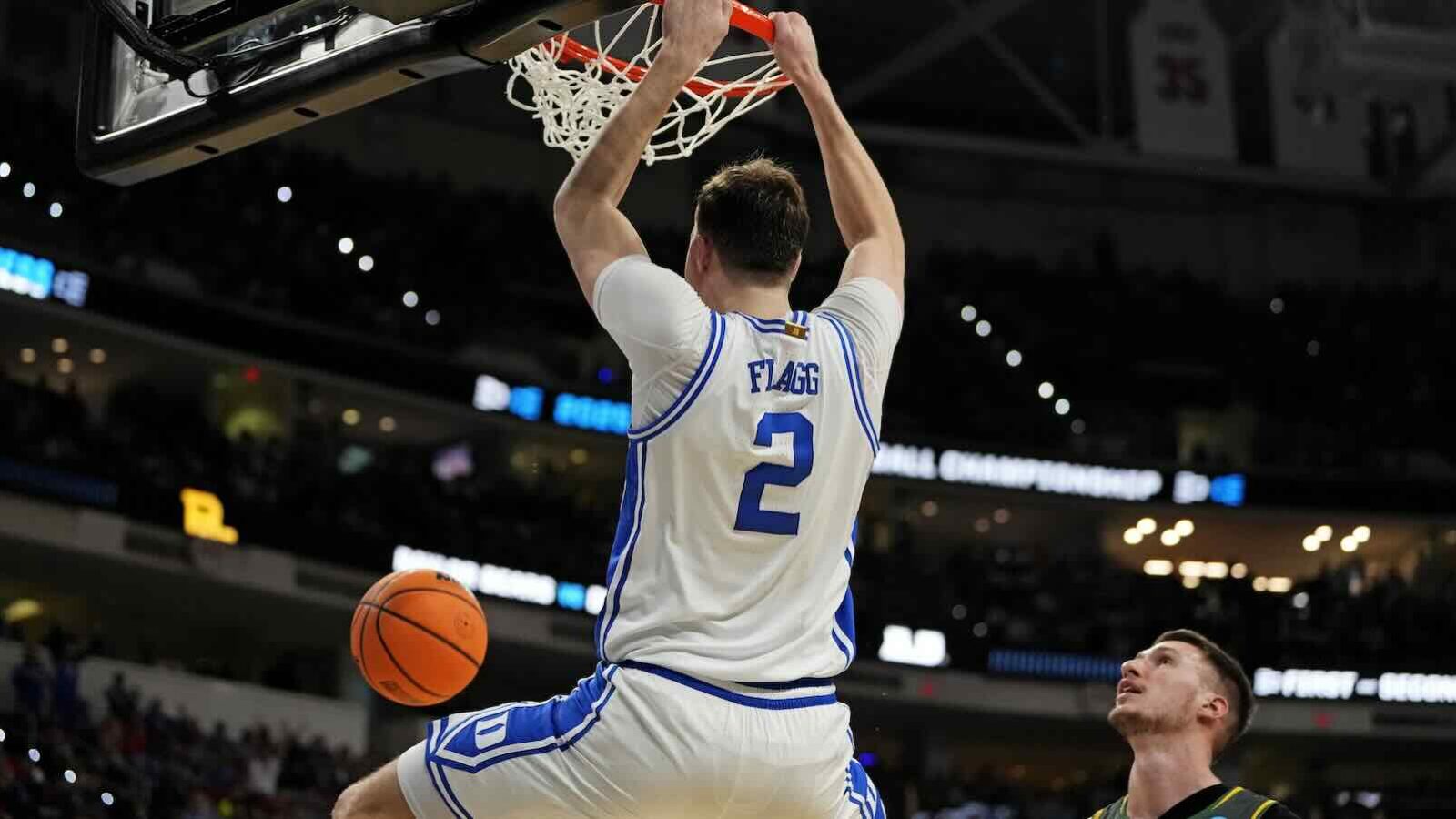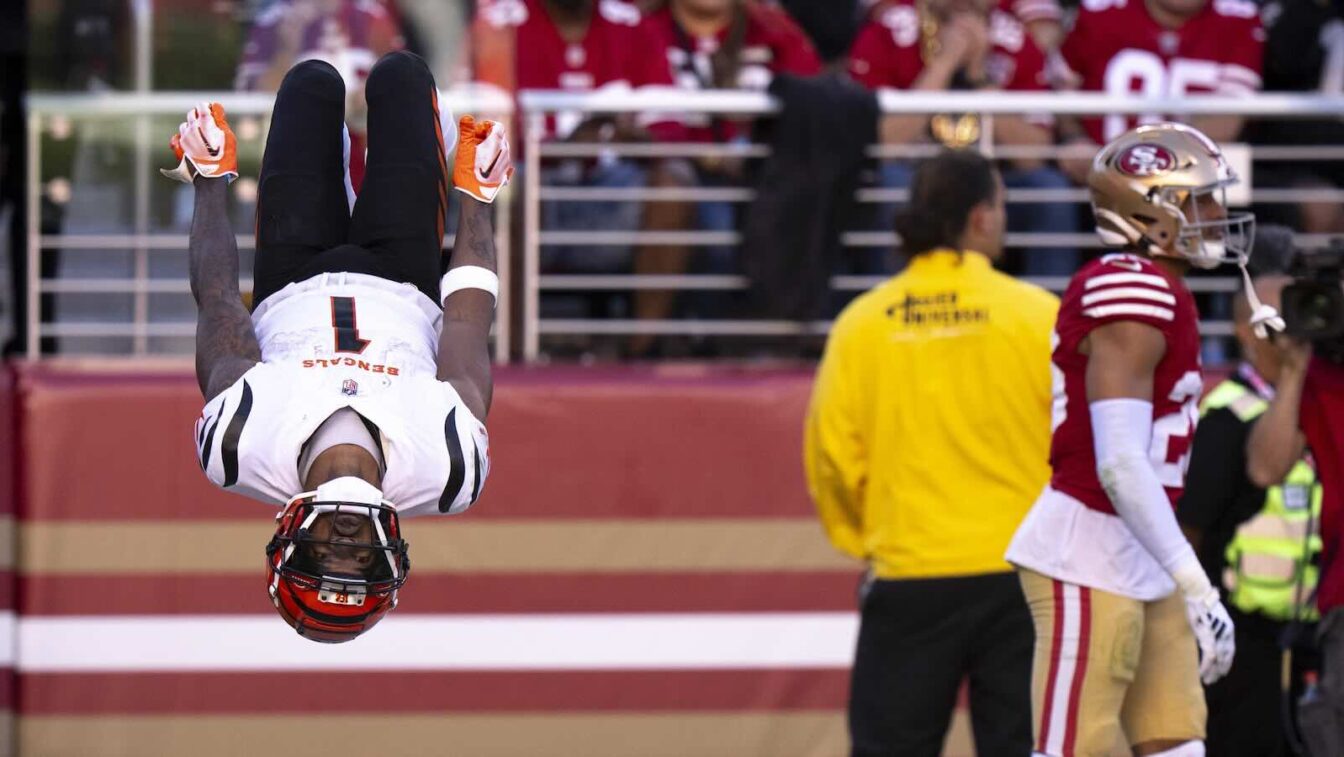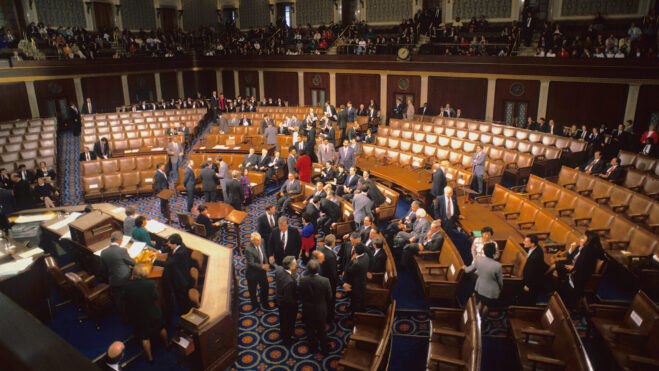Tensions Rising Between States, Sports Prediction Markets As Massachusetts Opens Probe
Are Robinhood sports contracts ‘just another gimmick’? Has the CFTC all but rubber-stamped them?
3 min

On Monday evening, Reuters exclusively reported that Massachusetts’ top securities regulator, Secretary of State Bill Galvin, had opened an investigation into trading platform Robinhood’s introduction of a prediction market platform.
The new Robinhood predictions hub, currently operating in partnership with the KalshiEx derivatives trading platform, allows users to bet (or “trade”) on the outcome of various events, including college basketball games occurring during the NCAA tournament.
This state-level regulatory investigation into the expansion of sports-based events contract trading marks the latest escalation of tensions over the legal footing for the fintech exchange foray into sports markets, or what is effectively sports betting — including live betting — in all 50 states.
“The emergence of scrutiny from Massachusetts is reflective of the thorny overlap between state-by-state regulation and one-size-fits-all federal oversight in the sports prediction market space,” said Ryan Rodenberg, a Florida State University professor who has followed the Kalshi v. Commodity and Futures Trading Association (CFTC) litigation closely. “Indeed, if Robinhood opts to file an injunction-seeking lawsuit in Massachusetts to stop the new inquiry, the CFTC could be motivated to intervene in the case on the same side as Robinhood.”
An apparent blessing from the feds
Per Reuters, Galvin’s office issued a subpoena seeking information related to how many of its brokerage account users in the state have requested to trade college sports events contracts, as well as internal Robinhood communications around the decision to make the March Madness trading available.
“This is just another gimmick from a company that’s very good at gimmicks to lure investors away from sound investing,” said Galvin.
The Massachusetts action comes on the heels of similar activity by the Nevada Gaming Control Board on March 4, when Nevada’s gaming regulator issued a cease-and-desist to Kalshi over the company’s offering of sports and election markets in the Silver State.
“Every sports pool in Nevada must undergo an extensive investigation prior to licensing, must adhere to strict regulation once licensed, and must pay all applicable taxes and fees,” NGCB Chairman Kirk Hendrick stated. “Any unlawful attempts to circumvent Nevada’s right to regulate gaming activity within its borders will be met with the full force of criminal and civil penalties.”
Then on March 14, in response to a request from Kalshi for more time to respond, the NGCB authorized an indefinite extension that appears to be ongoing.
Hendrick’s statement echoes the sentiments from a variety of stakeholders who submitted comments to the CFTC in advance of an upcoming roundtable discussion, possibly happening at the end of April, to discuss the legality and future of sports-related prediction markets in the U.S.
In particular, numerous states are concerned that the exchange pathway opening via the CFTC will effectively bypass state regulatory frameworks and state autonomy, consumer protections, licensure, and taxation protocols. Similarly, Tribal groups such as the California Nations Indian Gaming Association are viewing the development as a threat to tribal sovereignty and exclusive gaming compacts negotiated between tribes and states.
Other large stakeholders, such as regulated sports betting market share co-leader DraftKings, are taking a wait-see-and-prepare approach, having already filed to create “DraftKings Predict” with the National Futures Association, presumably a vehicle to enter the prediction markets space where it could be poised to access an even larger U.S. footprint.
Meanwhile, the latest statement from the CFTC, reported by Reuters and CNN, sends perhaps the strongest signal to date that the agency is extremely likely to determine that sports-based event contracts are lawful and permissible within the existing CFTC-mediated regulatory regime.
According to CNN, a CFTC spokesperson said in a statement that the agency had concluded that “review of the company’s risk management procedures and controls applicable to sports-related event contracts has completed, and at this time, the CFTC has no legal justification to prevent Robinhood from offering access to these contracts, which are listed on a CFTC-registered exchange.”
Through the first two rounds of March Madness this past weekend, Kalshi users have traded more than $200 million in contracts on the basketball contests, though that figure is not necessarily tantamount to a $200 million betting handle environment where bettors are pitted against the house.
Despite the CFTC’s strong signals in support of sports contracts trading under federal oversight, it seems a heavy favorite that in the run-up to the CFTC roundtable discussions, one or more state agencies or attorneys general will intervene in a manner similar to those in Nevada and Massachusetts so far.
In fact we’ll set the over/under at 1.5 more states to jump into the fray and issue a cease-and-desist or subpoena to Kalshi or Robinhood before April 30.






